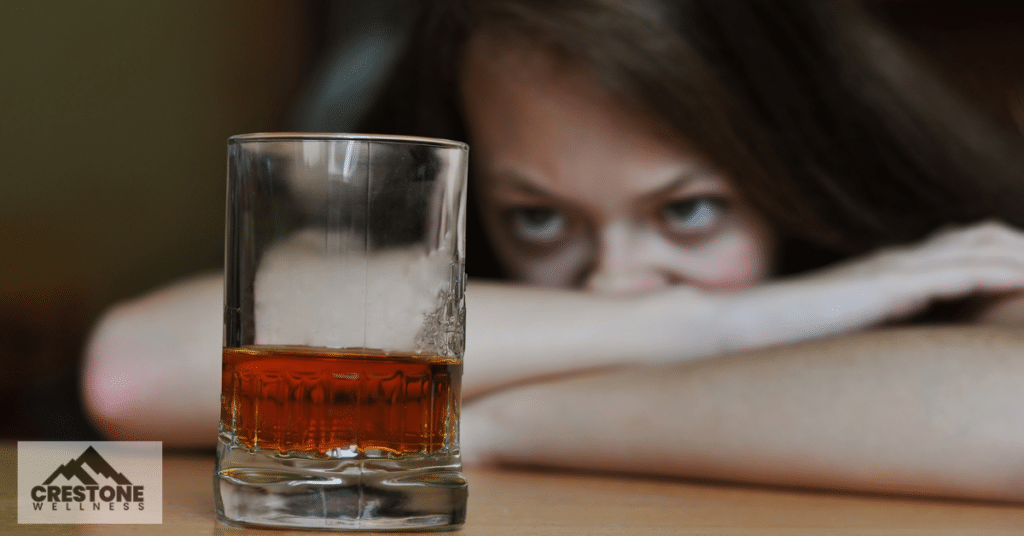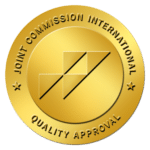Psychological Dependence On Alcohol: Withdrawal & Treatment
Alex Kudisch
September 29, 2022

Alcohol and substance abuse has often been dubbed “the overlooked, deadly epidemic.” That’s because 1 in 12 men and 1 in 25 women suffer from alcoholism.
To an average person, stopping seems simple – you just have to say no the next time someone offers you a drink or get rid of the alcohol in your home.
However, it’s not that easy because addiction can actually rewire your brain, causing a psychological or physical dependence on the substance. Additionally, physical withdrawal symptoms are often so severe that many return to alcohol abuse to escape these adverse after-effects.
We want you to know that overcoming physical and psychological dependence on substances is possible with the right help.
At Crestone Detox Austin – Alcohol & Drug Rehab, this is what we do best!
Understanding the Difference Between a Physical and Psychological Dependence

The truth is that most people experience both a physical and psychological addiction to alcohol. However, it is possible to have a physical dependence without being addicted psychologically.
Because treating psychological dependence is very different from handling a physical alcohol addiction, it is important to understand the difference between these two terms.
Physical Dependence

When a person stops using a substance such as drugs or alcohol or reduces the amount consumed, they will suffer withdrawal symptoms if they are physically dependent on it. The reality is that physical addiction to alcohol does not occur overnight. Instead, it is brought on by continued and regular substance abuse.
The person suffering from the condition starts to develop a tolerance to the substance before physical dependency sets in.
How People Build Tolerance
When people overuse mood- or mind-altering drugs so frequently that their bodies become accustomed to having the drug in their bodies, this process is known as tolerance.
As a result, a person who could previously get high from taking only one pill may need to consume increasingly larger doses of the substance to experience the intended benefits.
Alcohol dependence and tolerance function similarly. A person who could previously become intoxicated after two beers may now need to consume more hard liquor to get the same level of intoxication.
Tolerance Ultimately Leads to a Physical dependence
After building tolerance to drugs or alcohol, those who continue to use them will eventually develop a physical dependence and experience withdrawal symptoms if they stop using them. Remember that some substances are more likely to cause physical dependence than others.
Not All Substances Cause Dependence the Same Way
Opioids, alcohol, and benzodiazepines, for instance, may cause physical dependence more quickly than ecstasy or marijuana. Nevertheless, the regular use of any addictive substance can result in dependence.
Symptoms That Your Physical Tolerance Is Deteriorating
If you experience the following physical symptoms and abuse drugs or alcohol, your tolerance to alcohol is deteriorating, and you must seek help:
- Paranoia, anxiety, or panic
- Irregular sleep patterns
- Neglecting self-care
- Depression
- Lack of interest in everyday activities
- An inability to quit the use of drugs or alcohol
- Delirium Tremens, which can be life-threatening
Psychological Dependence

Psychological dependence occurs within the mind of an addict. As a result, the broad term “addiction” is often closely related to this type of dependence. It is a recurrent brain condition or mental illness that is distinguished by persistent and repetitive drug or alcohol usage.
When a person abuses alcohol or drugs over a long period, the structure and function of the brain are altered, which can cause changes in:
- Judgment
- Decision-making
- Emotional health
- Mental health
This makes it incredibly hard for a person to self-regulate and stop drinking. This means that despite being cut off from family, losing a job, or being fined for driving under the influence, a person may continue with alcohol or drug abuse.
Signs That Your Loved One May Be Psychologically Dependent on Alcohol:
Because psychological dependence causes significant changes in a person’s thoughts and emotions, there are a few tell-tale signs that they may be suffering from an addiction. Here’s what you should look out for:
- Mood swings or irritability when asked about their substance use disorder
- Showing no concern about the negative consequences of their addiction
- Struggling with their mental health while trying to stop drinking
- A strong urge or need to consume alcohol
- Constantly thinking or talking about drinking
- Feeling the need to use alcohol to deal with certain stressors
- Loss of appetite or changes in eating habits
- Denial
Psychological Withdrawal Symptoms

If you have developed a psychological and physical dependence on alcohol, the chances are that you are going to have a hard time giving it up. This is because, as we have already explained, substance abuse can rewire the brain and affect your emotional and mental well-being.
When you stop consuming alcohol, your brain structure and function will also change, reverting back to normal. However, before that can happen, you will experience the following withdrawal symptoms during your addiction treatment:
- Tremors or shakes
- Anxiety
- Headaches
- Gastrointestinal disturbances
- Increased heart rate or blood pressure
- Depression or mood changes
- Hyperthermia
- Rapid abnormal breathing
- Heart palpitations
- Seizures
- Hallucinations
- Insomnia
Treating Psychological Dependence on Alcohol and Substance Abuse

Treatment for a substance use disorder needs to address psychological and physical dependence (i.e., the emotional, mental, and physical aspects of dependence and addiction).
Here’s how we typically address psychological dependence at Crestone:
Detox
This is the first step on the road to recovery. We understand how challenging a detox can be, which is why we provide assistance, nutrition, and care throughout the detoxification process.
When you attempt to detox from drugs or alcohol when you are psychologically dependent, you are more likely to return to your substance abuse simply because of these unfavorable psychological symptoms.
Receiving addiction treatment from our facility in Austin, TX, is the first step on your to success. Whether you suffer physical or psychological dependence, we will help you rid your body of the substance.
Therapy

A person battling addiction must tackle the underlying issues that could have led to their early substance usage as well as any potential barriers to recovery during personal and family therapy.
This is also a place where psychological dependence can be managed and controlled by assisting the person in developing non-drug or non-alcohol alternatives to cope with stress, difficult emotions, social circumstances, or other triggers.
Recognizing one’s psychological reliance on alcohol or drugs enables one to become conscious of and start changing negative behaviors, thoughts, and feelings linked to psychological addiction.
Support Groups
You can address a psychological addiction to drugs or alcohol in:
- 12-Step groups
- Psychoeducational groups
- Process groups
- Anger management classes
Moreover, you will be held accountable by others and learn how to cope with symptoms of psychological dependence, including cravings, recurrent thoughts of drinking, and urges to drink in order to deal with everyday stressors.
Because everyone’s psychological reliance is different, some people decide to continue attending support groups for months or even years after receiving addiction treatment.
Medication
Depression, anxiety, and other mood disturbances may be signs of psychological substance abuse. A psychiatrist on staff may recommend medication to help alleviate and control these symptoms.
Take the First Step Toward Recovery with Crestone
If you or a loved one is suffering from physical and psychological dependence, the good news is that it is treatable. However, trying to address the psychological aspects on your own can be incredibly difficult.
You can take back your life and stop alcohol use with the proper care and treatment. Let us help you deal with your substance abuse and mental disorders!
As a dual diagnosis treatment facility, Crestone Detox Austin – Alcohol & Drug Rehab offers holistic treatments, including nutrition, exercise, medication management, massage therapy, group support, one-on-one sessions, and other components that help to restore the physical and psychological deficits caused by addiction.
Contact us today to find out more about our facility and how we can help you deal with psychological dependence!
Frequently Asked Questions
1. How long does it take to develop a psychological dependence on alcohol?
A person typically develops a psychological dependence after consuming alcohol daily for at least three months.
2. What are my options for dealing with psychological dependence?
Here are the options we offer for psychological dependence and addiction:
- Residential treatment programs. This type of care provides round-the-clock medical attention. The patient’s absence from potentially dangerous triggers is one of the main advantages. Instead, they live in a supportive and sober neighborhood.
- Outpatient treatment. If you have important duties outside of recovery, this is the perfect option for dealing with a psychological dependence on alcohol. Outpatient therapies strive to build a flexible schedule that suits your needs, whether it is tied to childcare or a profession.
- One-on-one therapy. Individual therapy for co-occurring problems focuses on increasing your motivation, exposing self-defeating attitudes, and adopting healthy new habits. Therapy is designed to deal directly with psychological dependence on any drug or substance.
3. Does alcohol treatment require detox?
Yes, this is an important first step in your recovery and helps to rid your body of the substance, helping it function more efficiently and returning your brain function back to normal.
4. What is an alcohol detox like?
Like most detoxes, you will experience adverse withdrawal symptoms when you stop consuming alcohol. You may experience depression or disturbances in digestion. These symptoms differ from one person to the next.



